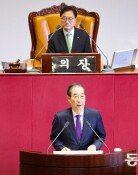The Higher Oil Prices Get, The More The Press Is Stifled
The Higher Oil Prices Get, The More The Press Is Stifled
Posted May. 25, 2007 03:12,
The president of Venezuela, Hugo Chávez, recently decided to get rid of a private broadcasting station and establish a state-controlled one. The Russian government recently revoked the license of approximately 100,000 journalists. The Iranian government recently shut down a series of daily newspaper companies and suppressed dissidents.
What is the motive behind all these government actions? An American journalist Thomas Friedman last year wrote an article for Foreign Policy magazine titled, The First Principle of Petropolitics that said, The price of oil and the pace of freedom always move in opposite directions in oil-rich petrolist states. While the price of oil jumped from $30 per barrel in 2002 to more than $55 per barrel in 2006, the amount of freedom in oil producing nations diminished.
In its annual report on journalistc freedoms released by Journalists Without Borders, the group ranked Venezuela 115th down from 77th, Russia 147th from 121st, and Iran 162nd from 122nd compared to the year before. The American daily newspaper Christian Science Monitor said on May 24, It`s because oil prices are so high [that] these oil-producing countries feel they can get away with a lot and take steps to silence the press.
The Venezuelan government decided not to renew the broadcast license of Radio Caracas Television (RCTV) which had the longest history in the country as an independent broadcasting company. In the daily morning show "The Interview," the Venezuelan leader was ridiculed as "that guy" who should be "thrown out" before he becomes a dictator. Many people knowing that the station will be closed on May 28 took to the streets on May 19 and 21, protesting against the governments move.
The Russian government announced the eviction of its 100,000-member journalists` union from its offices to make way for a state-funded English cable news network. In Russia last week, local authorities took steps they apparently believed would limit the public relations damage to an EU-Russia summit in Samara: police arrested organizers of a protest by the opposition "Other Russia" movement, as well as journalists who had been trying to interview them. They also raided the Samara offices of the opposition newspaper Novaya Gazeta, seizing computers and blocking publication of the paper`s Monday edition.
In Iran, recent crackdowns under conservative President Mahmoud Ahmadinejad since 2005 have focused on shutting down hundreds of newspapers. Last year alone, Sharg, which carried a satirist cartoon about President Mahmoud Ahmadinejad going nuclear, along with three other newspapers, were closed.
Moisés Naím, the editor and publisher of Foreign Policy magazine, says that such press censorship is not limited to oil producing countries, and it has evolved from a "heavy hand of the state that directly takes over operations" to a more indirect form, he says, that often takes the shape of scrutiny by tax authorities or by economic boycotts.
ecolee@donga.com







